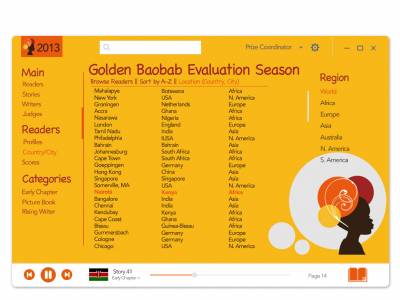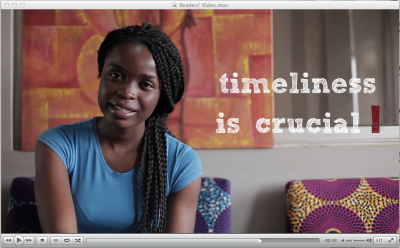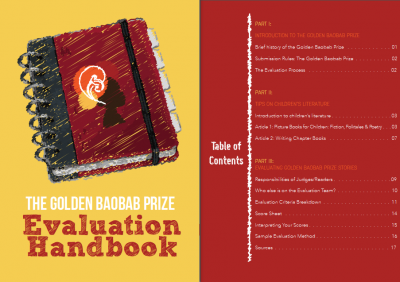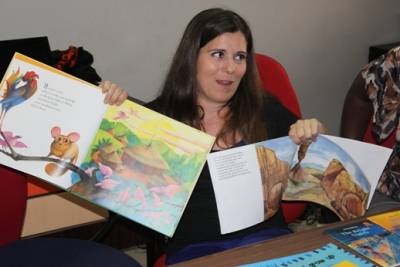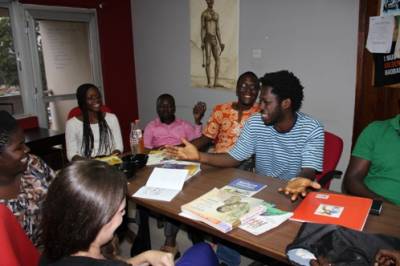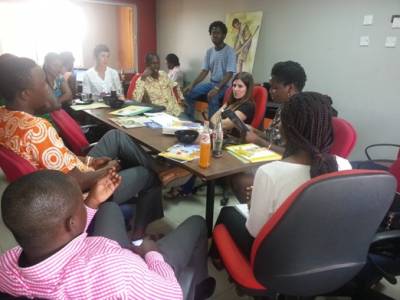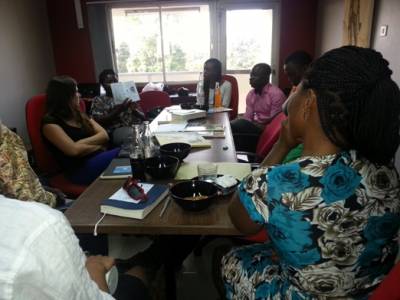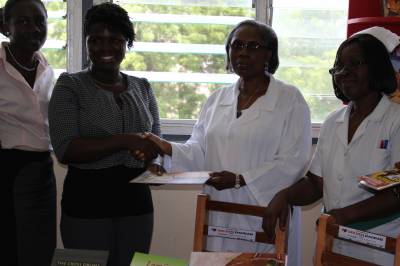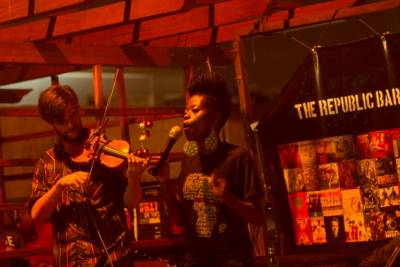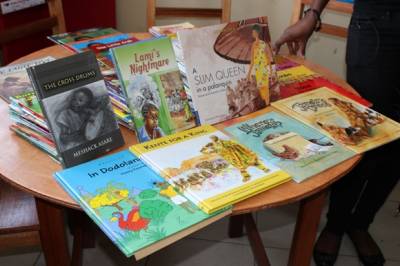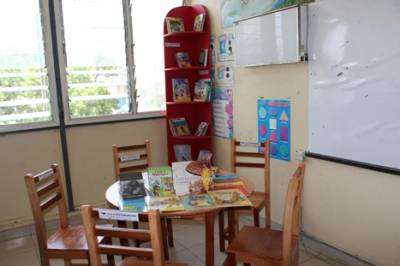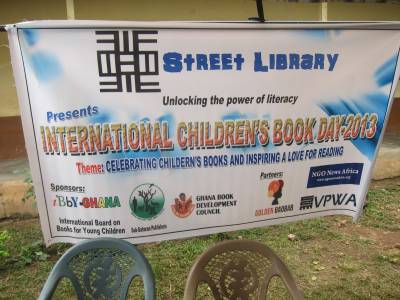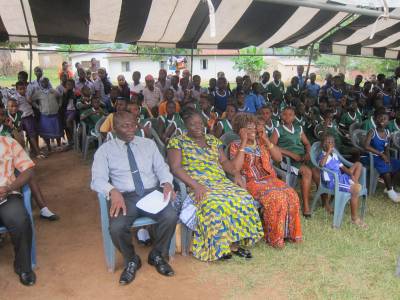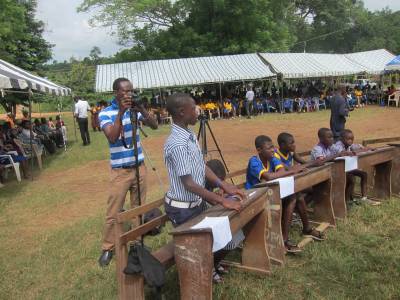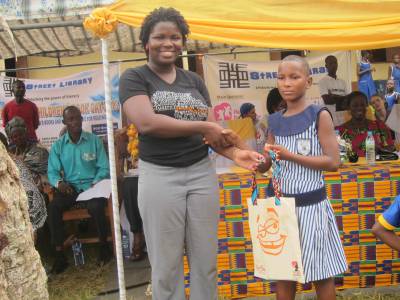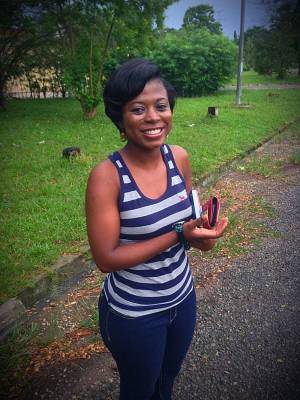
On July 26 2013, there was a press release from Golden Baobab announcing the end of its call for submissions for the 2013 Golden Baobab Prize. Golden Baobab has undoubtedly established itself in the literary sphere as the voice of African children’s literature. As the Executive Director, Deborah Ahenkorah says, “African children deserve to grow up surrounded by stories that reflect their cultures and experiences.” This statement has been the driving force in the Golden Baobab key objective of pushing African stories to the forefront of the literary world.
Considering the number of stories received this year, 180 stories from 13 African countries, is it untoward to ask, “Does Africa not care for the intellectual growth of its future citizens?” A continent with 54 countries and 1 billion people (as at 2009) and only 180 stories from 13 countries! Stories are the repositories of culture. In my opinion, I think we can do better than this. It is true that all the 1 billion people cannot write stories for children and are doing other worthy things but I still think we can expect more.
True, our continent has been beleaguered with circumstances (low literacy rate, coups, etc )hat have stunted our growth and development but how long are we going to pull up this card anytime the issue of not doing enough is raised? The Golden Baobab Prize was established to inspire the creation of enthralling African children’s stories by gifted African writers. Currently In its 5th year, the Prize has received a little over a thousand submitted stories. A little over a thousand stories in 5 years, in the world’s second largest continent with its over 1 billion people scattered all over the world. This is not good enough.
I am not in anyway discounting the invaluable contribution to African Children’s Literature other organizations have made. The Junior African Writers Series (JAWS) by Heinnemann and the Pacesetters books by Macmillan may be mentioned as the stimulant of African writing for children. The bustling publishing industry of South Africa and Nigeria is something to be proud of. However, Africa is more than just these 2 countries ; there is so much we can do.
It is about time we had a serious conversation about the African children’s literature industry and space that Golden Baobab occupies with other well-meaning organizations on our continent. The children’s book publishing in India is estimated to be worth $1.15 billion growing at the rate of 25% per annum.
According to IBIS World’s Market Research on the Children’s Book Publishing Industry over a period of 5 years (2007 to 2012), the industry (in the US) accounted for:
- 487 businesses
- $3 billion in revenue
- 9, 307 people employed and
- An annual growth of 0.7%
These are positive statistics that should set investors on a scrambling spree yet you and I know that is not the case. This is a billion dollar industry waiting to be taken over by writers, illustrators, publishers, marketers and anyone you can think of within this space. South Africa may be considered as the hub of African children’s literature. To paraphrase the title of NoViolet Bulawayo’s famous book, “We need new countries.” We need new countries to be known for African children’s literature so that Africa can have a fair representation in the sphere of children’s literature. We need new names, new authors, new illustrators, new readers.
So why aren’t our African writers writing for children?
A publisher friend once told me that that the “literature” (fiction and non-academic material) market itself is not considered profitable enough that is why many of the publishing houses lean towards the publication of academic/educational materials that has a steady market. What other reasons are there? We would like to know. Upon interaction with some writer friends, the issue of money was mentioned as a reason why African writers aren’t writing for children. Money to “motivate” them to dedicate their time to churn out stellar literary pieces for African children, money to attend conferences and writing workshops which will keep them updated on happenings in the writing and publishing world. If the Golden Baobab Prize had more money, I believe it would offer more than the $1,000 dollars that winners are given but like everyone else, only more money will make that happen. Money is not the panacea to the problems of the African children’s book publishing industry but it will go a long way in alleviating some of the problems facing it.
African writers need publishers (neither vanity presses nor academic/educational publishers) who will be willing to place quality over expenses. This is not to say academic or educational publishers cannot do it. Heinemann and Macmillan are at their core, academic/educational publishers but they set aside different departments dedicated to literature. African writers need publishers interested in the growth of their clientele and what they represent; publishers who will explore ways of making books available to as many consumers as possible.
I understand that we need more of everything, more writers, more stories, more illustrators and more publishing houses who want to print excellent material . Parents must read to their children, especially the pre-literate ones so that the love for reading can be inculcated at an early age. Books generally simulate readers’ emotional responses and children can acquire compassion for others and insight into their own behavior and feelings from reading. Reading about story characters’ feelings and actions also help to develop children’s ability to understand and appreciate other’s feelings. More African children reading would lead to more consumers patronizing African children’s literature.
Considering the statistics on the children’s literature industry in the US, we must believe that building a booming African children’s literature industry is doable. We know some characters from the American children’s literature because they did not stay in books. They travelled around the world as stuffed toys, we watched them on TV shows and in movies. How many of the African children’s books already published have been turned into movies or characters? We know Cinderella and can relate to her because we know other people with wicked stepmothers whose existence dwells on ensuring that they don’t progress in life while their children prosper. We can write about our own Cinderellas who live in our neighbourhoods and sell grapes and plantain chips in traffic.
Let’s get talking. Why don’t you join us in this conversation about the children’s book industry in Africa? What can Golden Baobab do better to ensure that we get more stories from the 54 African countries? What can publishers do? What can investors do? What can we all do to ensure in some years to come, anyone can walk into a bookshop and buy a beautiful African story to read to his or her child? It’s our Africa!
Join us in a discussion about the future of the African children's literature industry on Friday, August 16, 2013 at 16:00 GMT. Follow Golden Baobab on twitter (@GoldenBaobab) and on Facebook.com/GoldenBaobab. Feel free to repost this on your blog and spread the word. We would love to hear your views on this important topic!
-------------------------------------------------------------------------------------------------------------------------------------------------------------------------------------
Dorothy is a publishing coordinator at Golden Baobab. She is passionate about African literature, food and culture, human rights and dogs. She wishes she could tweet more if she had more things to tweet about. She is forever plagued with wanderlust.
